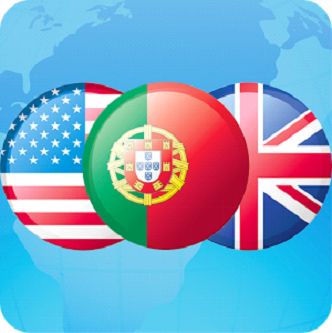Leading English To Portuguese Translation Solutions for Your Needs
Leading English To Portuguese Translation Solutions for Your Needs
Blog Article
Top Tips for Perfect English to Portuguese Translation Services
Attaining remarkable English to Portuguese translation needs more than plain word-for-word conversion; it demands an understanding of etymological complexities and cultural nuances. Picking qualified translators that are both culturally aware and well-versed is critical - English To Portuguese Translation. What other important elements should be taken into consideration to raise translation quality better?
Understand Cultural Nuances
When translating from English to Portuguese, comprehending the social subtleties is vital for generating a precise and powerful message. The Portuguese-speaking world is varied, including various regions, each with its unique customizeds, idioms, and social norms. A translator needs to be in harmony with these subtleties to make sure that the translation not only conveys the intended message but also reverberates with the target market.
As an example, colloquial expressions in English might not have straight equivalents in Portuguese. An expression that functions well in one culture could result in confusion or false impression in an additional. Comprehending regional languages and variants, such as those discovered in Brazil and Portugal, is crucial; words might hold various undertones or usages relying on the area.
In addition, cultural context plays a considerable duty in translation. Inevitably, a complete understanding of cultural subtleties is important for providing translations that are not only linguistically exact but also culturally pertinent and appealing.
Select Certified Translators
Picking certified translators is a crucial action in making certain the accuracy and quality of English to Portuguese translations. A translator's competence not only incorporates language effectiveness but likewise a deep understanding of cultural context, colloquial expressions, and industry-specific terms. When selecting a translator, prioritize those with formal training in translation researches or grammars, as well as pertinent qualifications that demonstrate their specialist skills.
Experience plays an essential function as well; translators focusing on particular fields-- such as legal, medical, or technological-- are most likely to supply accurate translations customized to the market's standards (English To Portuguese Translation). In addition, consider their profile and customer reviews to examine their previous work quality and dependability
Engage translators who are indigenous Portuguese audio speakers, as they possess an inherent understanding of the language's subtleties and local languages. This experience enhances the translation's credibility and performance.
Use Contextual Referrals

When equating, it is important to recognize colloquial expressions and social references that might not have direct equivalents in Portuguese. For example, specific phrases that resonate in English could look at here now require adaptation to convey the same emotional weight or social importance in Portuguese. Utilizing contextual references can aid translators select the appropriate terms and design, thereby boosting the overall quality and effect of the translation.

Emphasis on Localization
Localization plays an important duty in the translation procedure from English to Portuguese, as it guarantees that the translated content is pertinent and culturally ideal to the target market. English To Portuguese Translation. This process exceeds simple translation; it involves adapting the content to the cultural, social, and etymological subtleties details to Portuguese-speaking regions
Comprehending local expressions, customs, and choices is essential. As an example, specific phrases or referrals that resonate with an English-speaking target market may not have the exact same influence on Portuguese audio speakers. It is important to think about regional variations, such as Brazilian Portuguese versus European Portuguese, as each has unique vocabulary and stylistic differences.
Additionally, localization encompasses formatting, such as day and time styles, money, and dimension units, which can vary dramatically across societies. This interest to information promotes a connection with the audience, enhancing interaction and understanding.
In addition, using local languages and jargon can supply credibility, making the web content a lot more relatable. By concentrating on localization in English to Portuguese translation, organizations can efficiently communicate their message, Resources develop count on with their audience, and eventually achieve their desired purposes.
Evaluation and Edit Completely
Extensive evaluation and editing are vital action in the translation procedure, particularly when transforming English material into Portuguese. This stage guarantees that the converted material not only preserves the original definition but also reverberates well with the target audience. Offered the cultural and linguistic subtleties, a precise method to assess and editing is vital.
Begin by contrasting the original English text with the Portuguese translation, paying very close attention to tone, context, and terminology. It's critical to ensure that social references and idiomatic expressions are appropriately adapted for the Portuguese audience. Engaging a 2nd translator or a native audio speaker for this evaluation process can supply invaluable insights and capture mistakes that may have been neglected.
In addition, look for grammatical accuracy and stylistic uniformity throughout the paper. Typical difficulties such as unclear phrases or false cognates must be resolved to avoid misconception.
Verdict
Achieving exceptional English to Portuguese translation services necessitates a detailed method that includes understanding cultural nuances, picking qualified translators, making use of contextual recommendations, prioritizing localization, and carrying out thorough evaluations and edits. Each aspect plays a critical function in making sure that translations are not only exact yet additionally resonate with the target audience. By applying these methods, organizations can enhance the efficiency of their communication and promote a deeper connection with Portuguese-speaking audiences.
Achieving outstanding English to Portuguese translation requires more than plain word-for-word conversion; it requires an understanding of etymological details and cultural subtleties.Picking certified translators is an important step in ensuring the accuracy and quality of English to Portuguese translations.Extensive review and editing and enhancing are essential steps in the translation procedure, specifically when transforming English material right into Portuguese.Begin by contrasting the original English text with the Portuguese translation, paying close interest to context, tone, and terms.Achieving outstanding English to Portuguese translation services necessitates an extensive technique that includes understanding social subtleties, choosing certified translators, utilizing contextual referrals, prioritizing localization, and conducting thorough reviews and edits.
Report this page